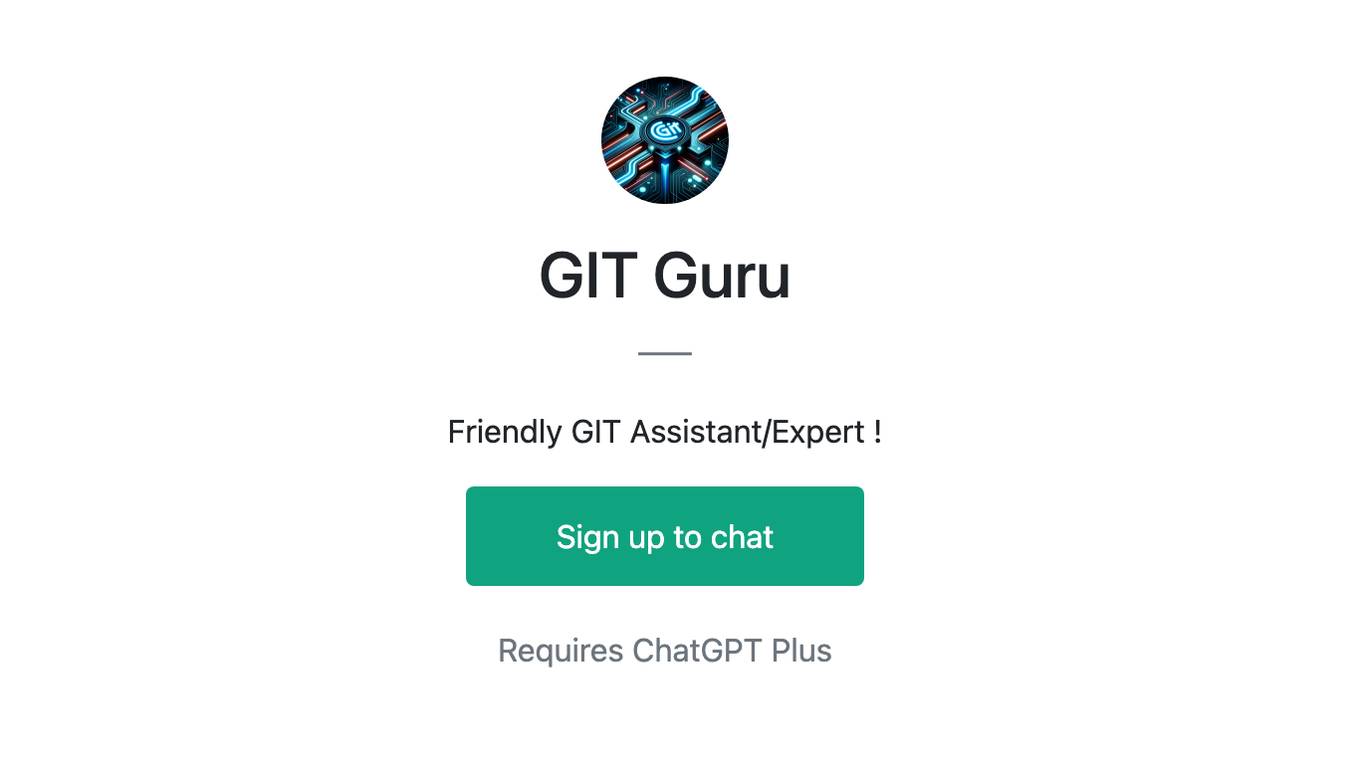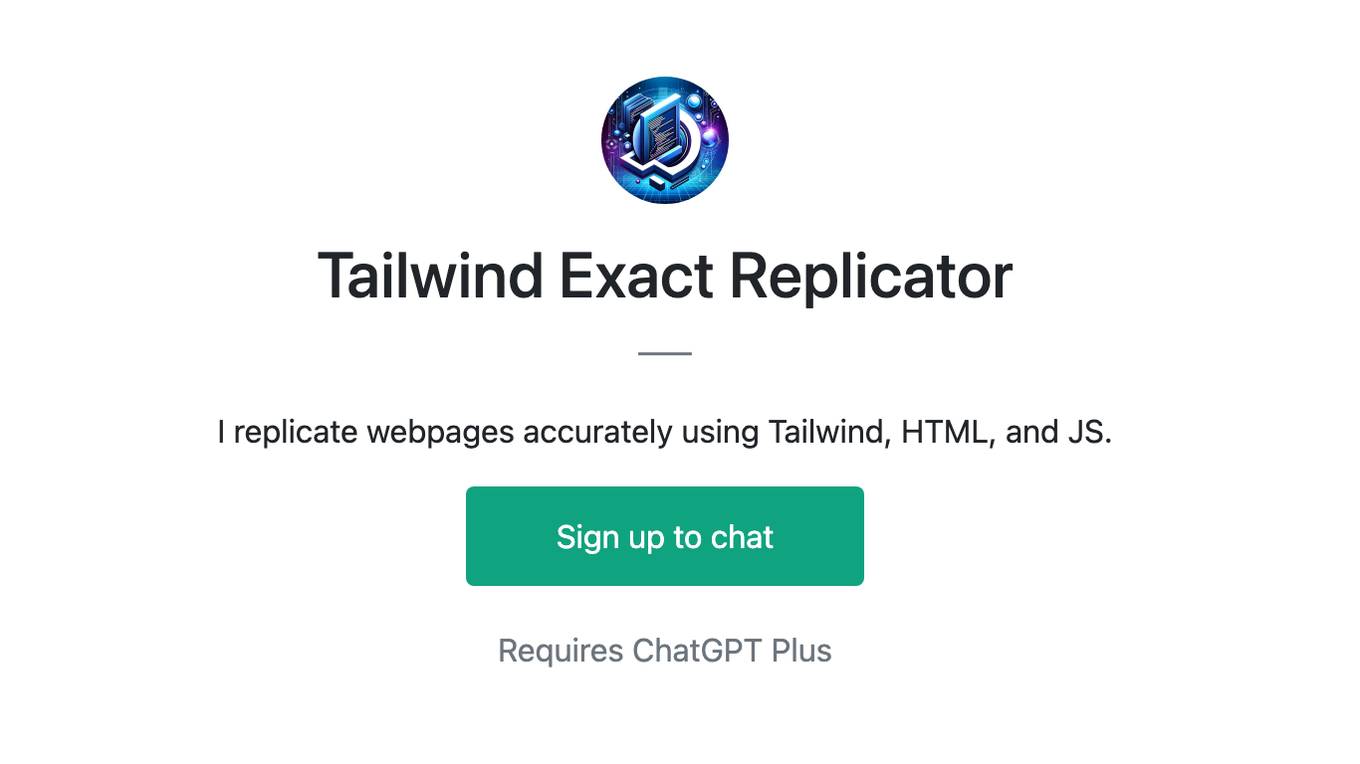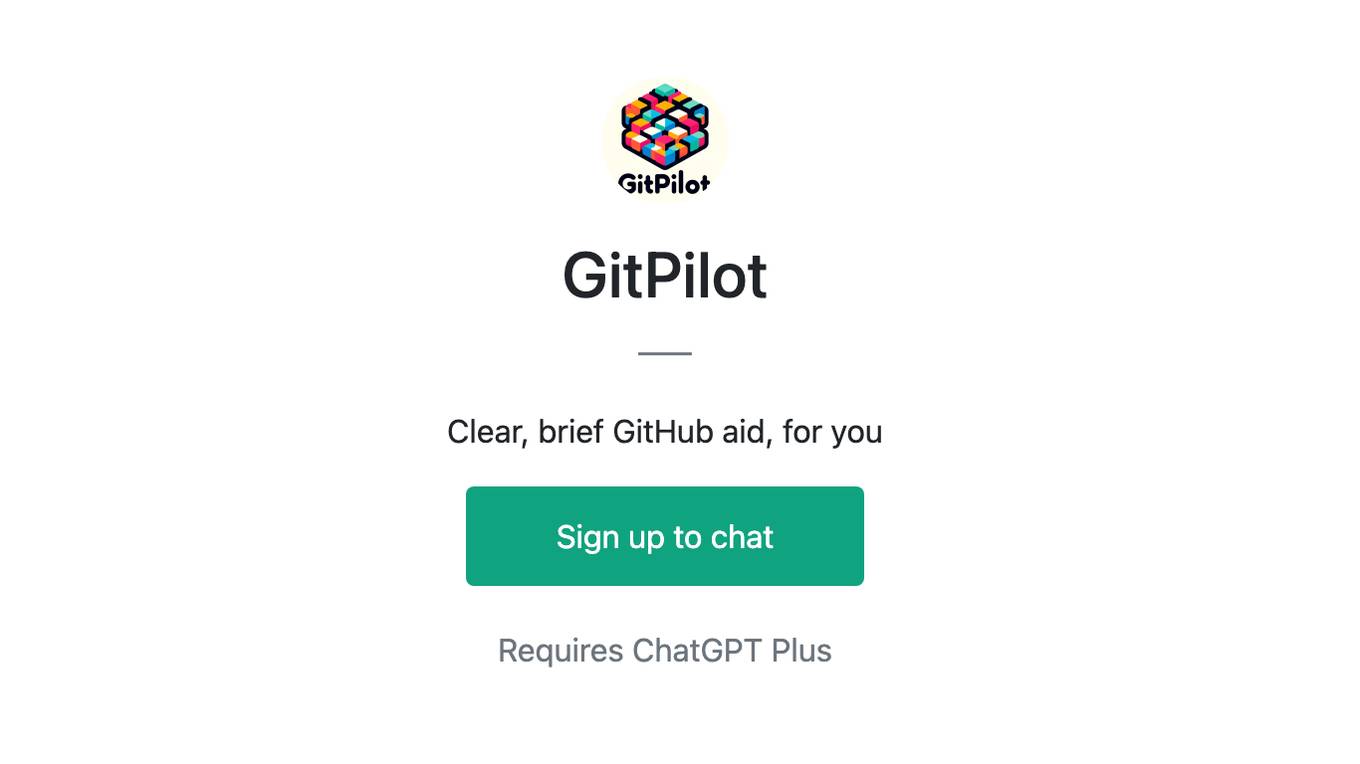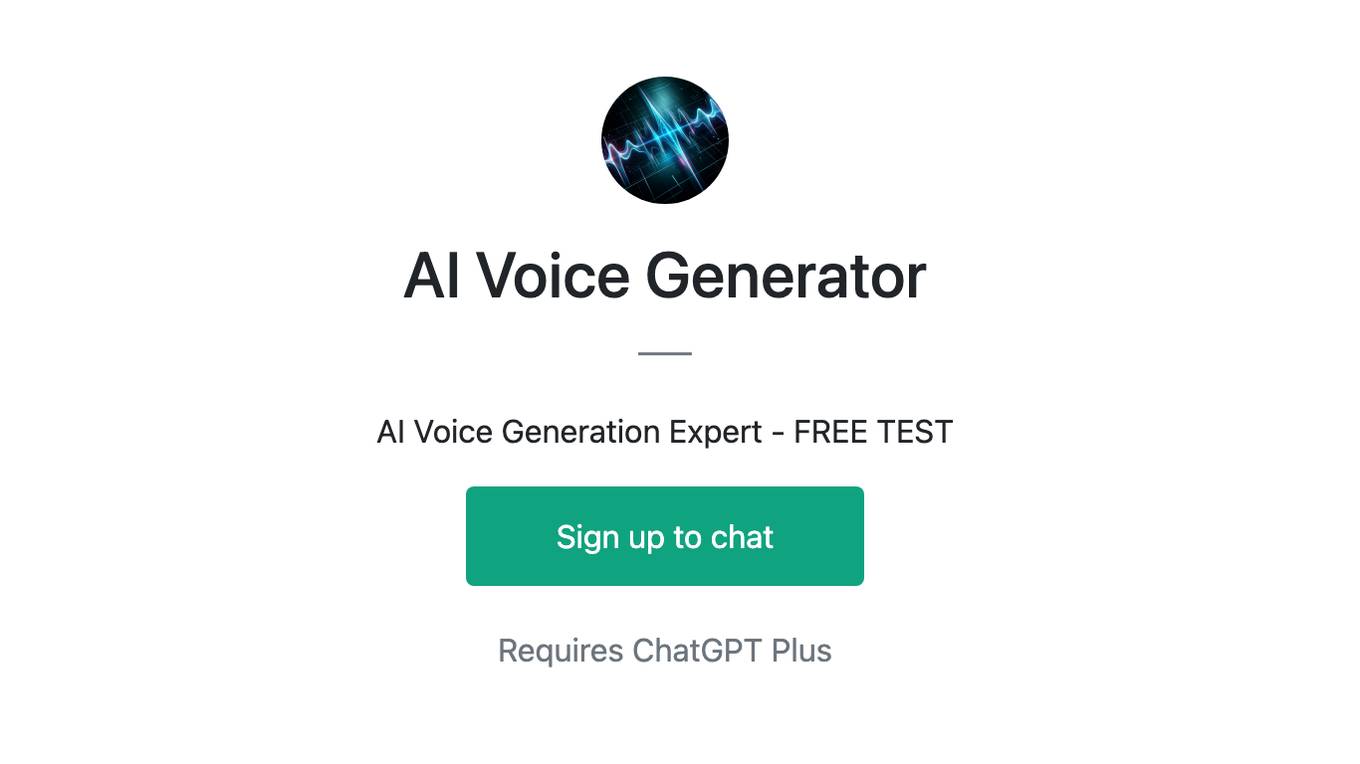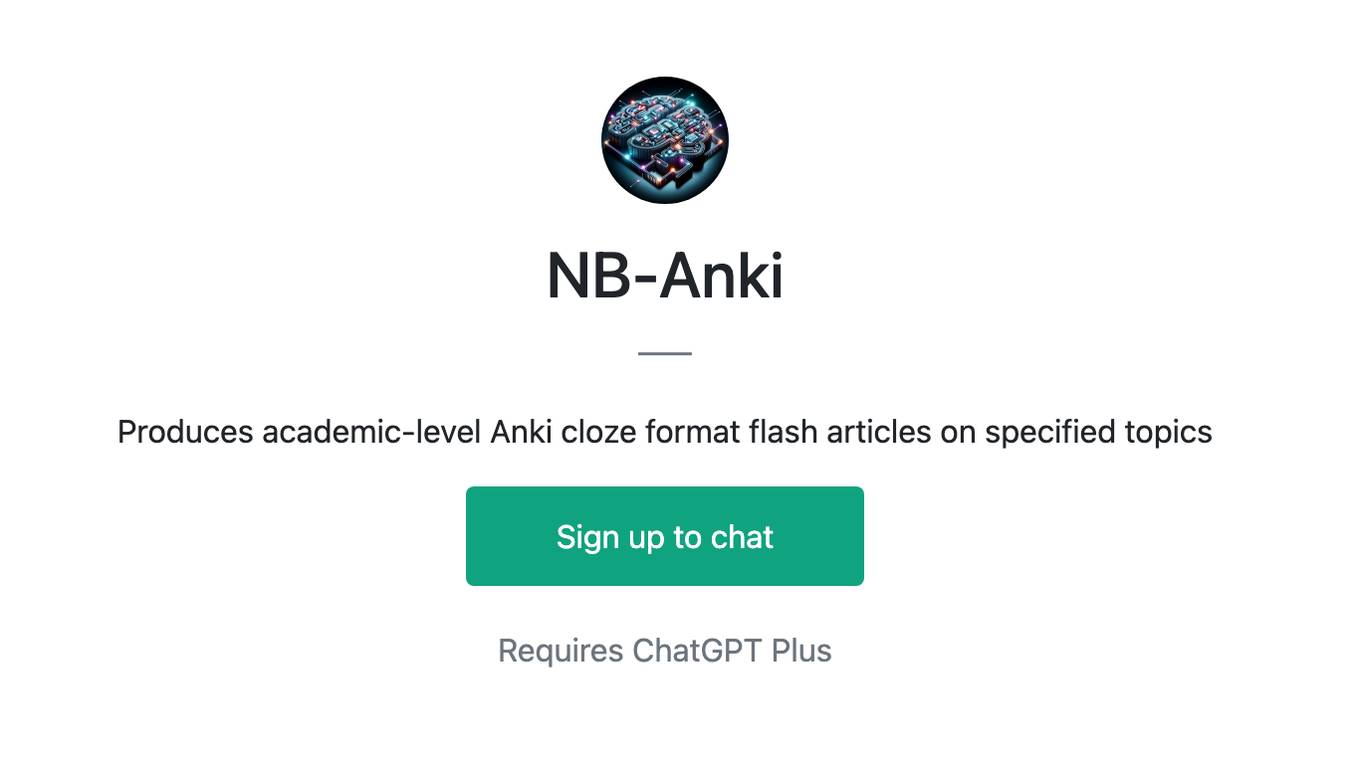Best AI tools for< Clone Tensorflow Repo >
20 - AI tool Sites
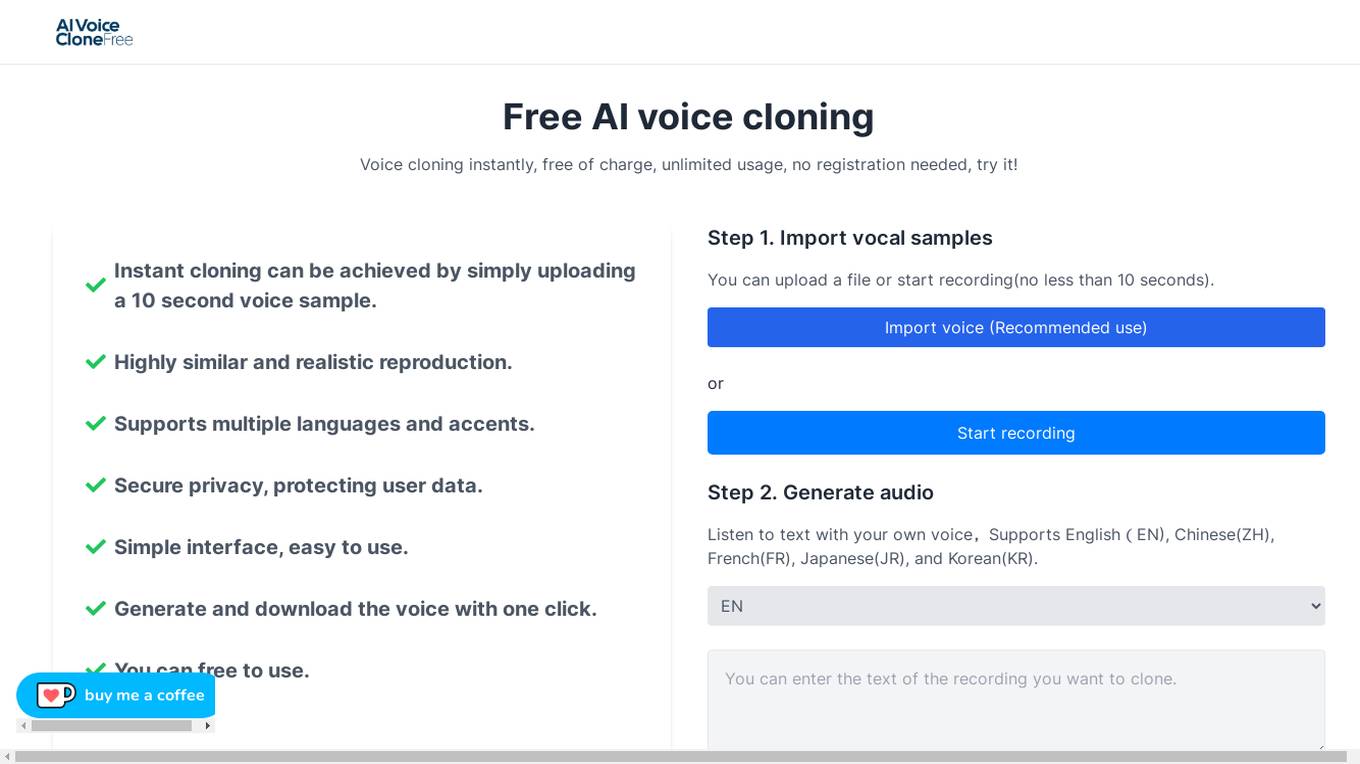
Woy AI Tools
Woy AI Tools is a free AI voice cloning application that allows users to instantly clone voices with high similarity and realism. Users can upload a 10-second voice sample to generate and download cloned voices in multiple languages and accents. The tool ensures secure privacy and offers a simple interface for easy usage.
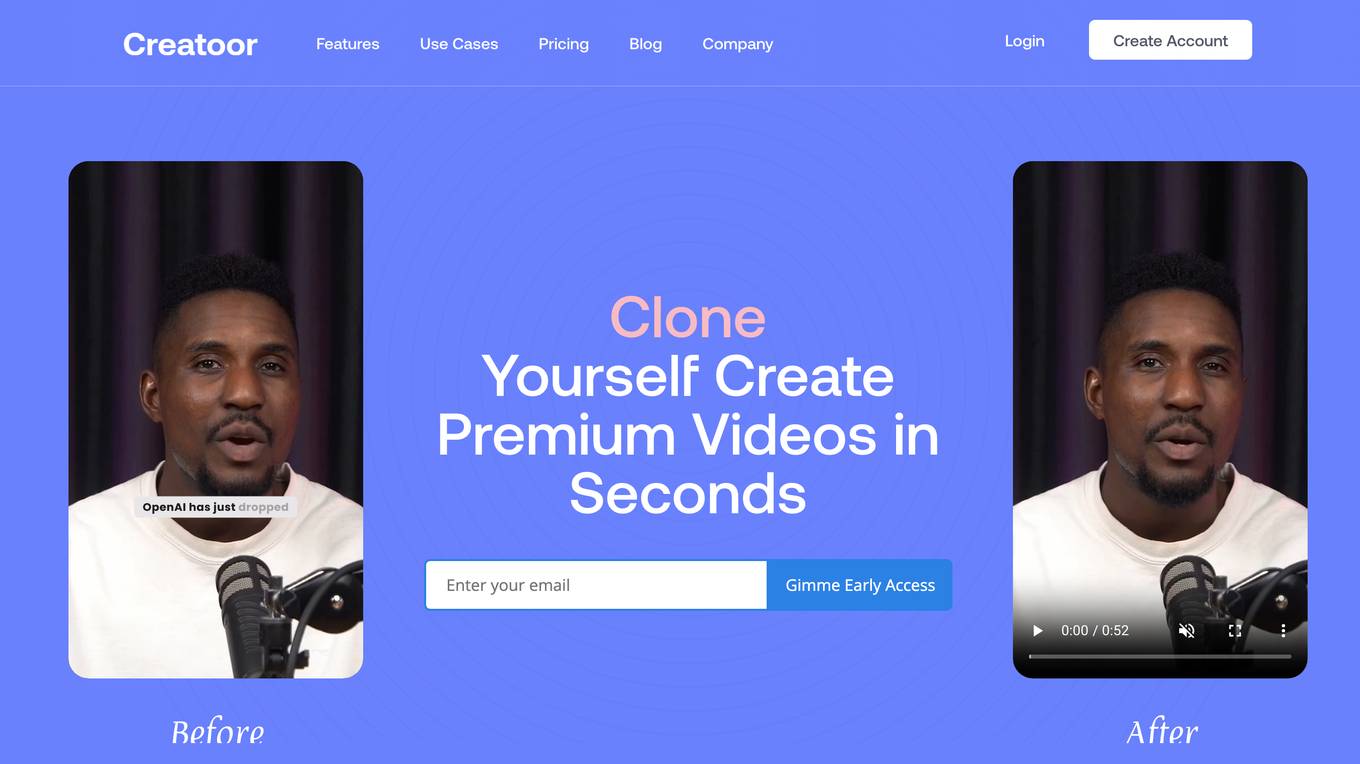
Creatoor AI
Creatoor AI is a cutting-edge platform that empowers you to create stunning videos using artificial intelligence. With its user-friendly interface and advanced features, Creatoor AI makes it easy to produce professional-quality videos in a matter of seconds. Whether you're a marketer, entrepreneur, or content creator, Creatoor AI has everything you need to elevate your video content and captivate your audience.
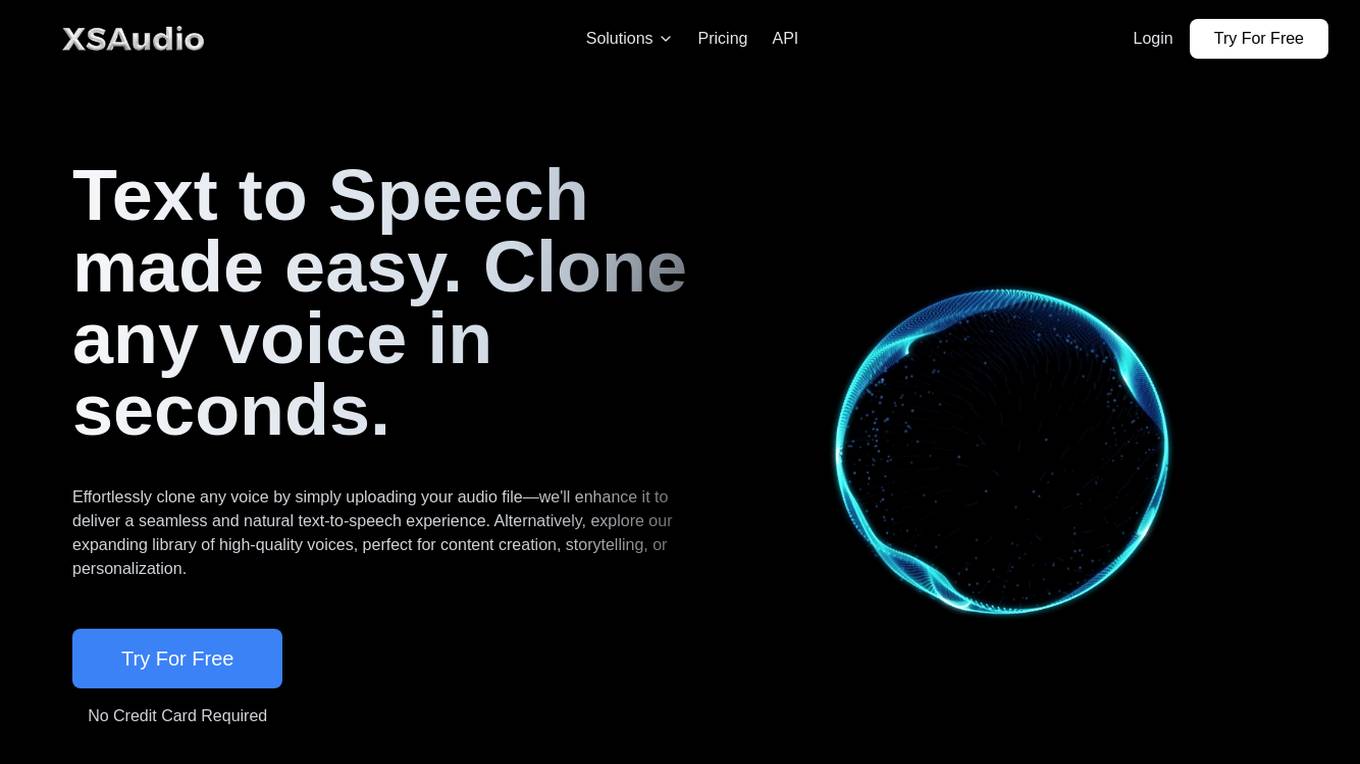
EZClone
EZClone is a voice cloning service powered by advanced AI technology that allows users to effortlessly clone any voice by uploading an audio file. Users can access a growing library of high-quality voices or create custom voice clones for content creation, storytelling, or personalization. The application offers different pricing plans with varying features and benefits, including audio enhancement, voice cloning, and access to premium voices. Users can easily generate high-quality audio files by selecting a voice, entering text, and clicking to generate the audio. Additionally, EZClone provides technical support based on the user's subscription plan, ensuring a seamless experience for voice synthesis enthusiasts.
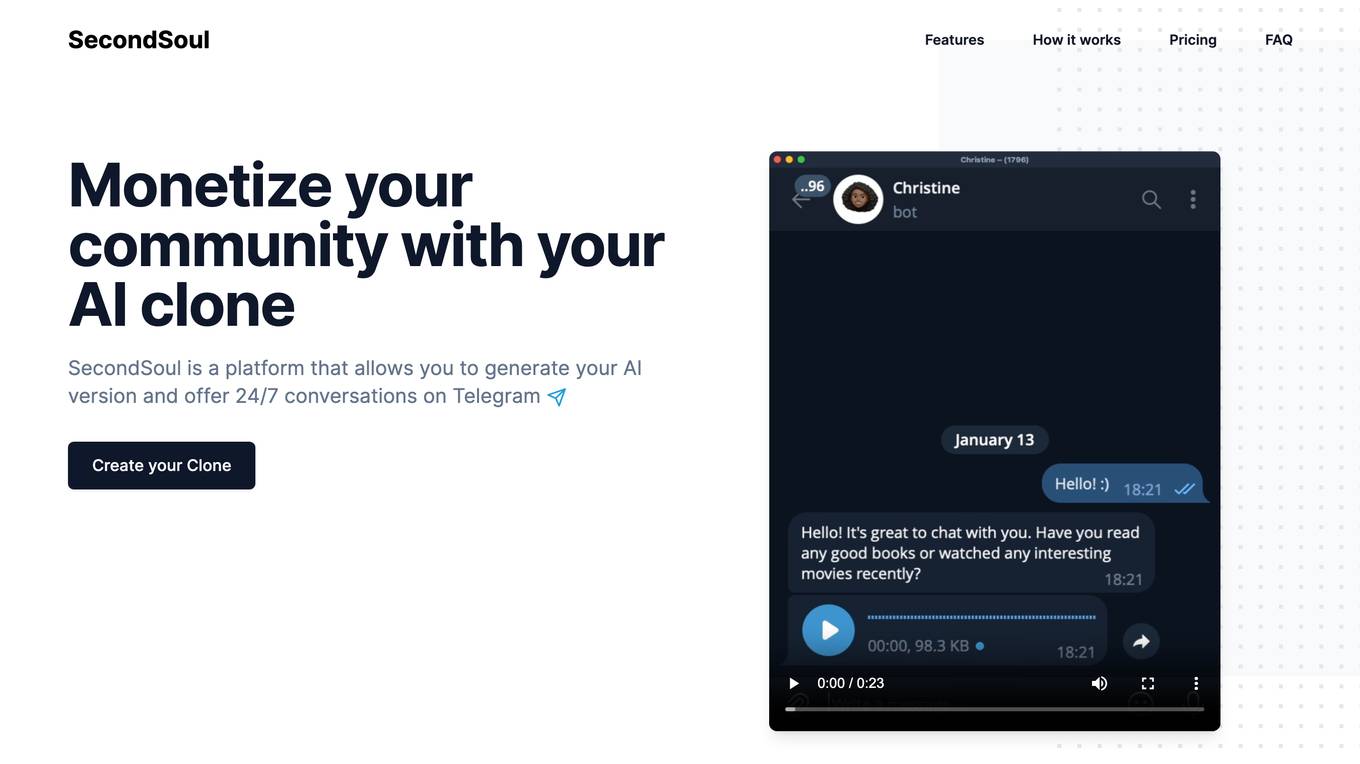
SecondSoul
SecondSoul is an AI platform that enables users to create their AI clone for engaging 24/7 conversations on Telegram. It allows users to customize their AI clone with unique traits, voice, and train it to mimic their style. The platform offers a straightforward pricing model with a revenue split, where creators earn 80% of the messages fee from users of their clone. SecondSoul aims to enhance user experience, provide companionship, and monetize community interactions through AI technology.
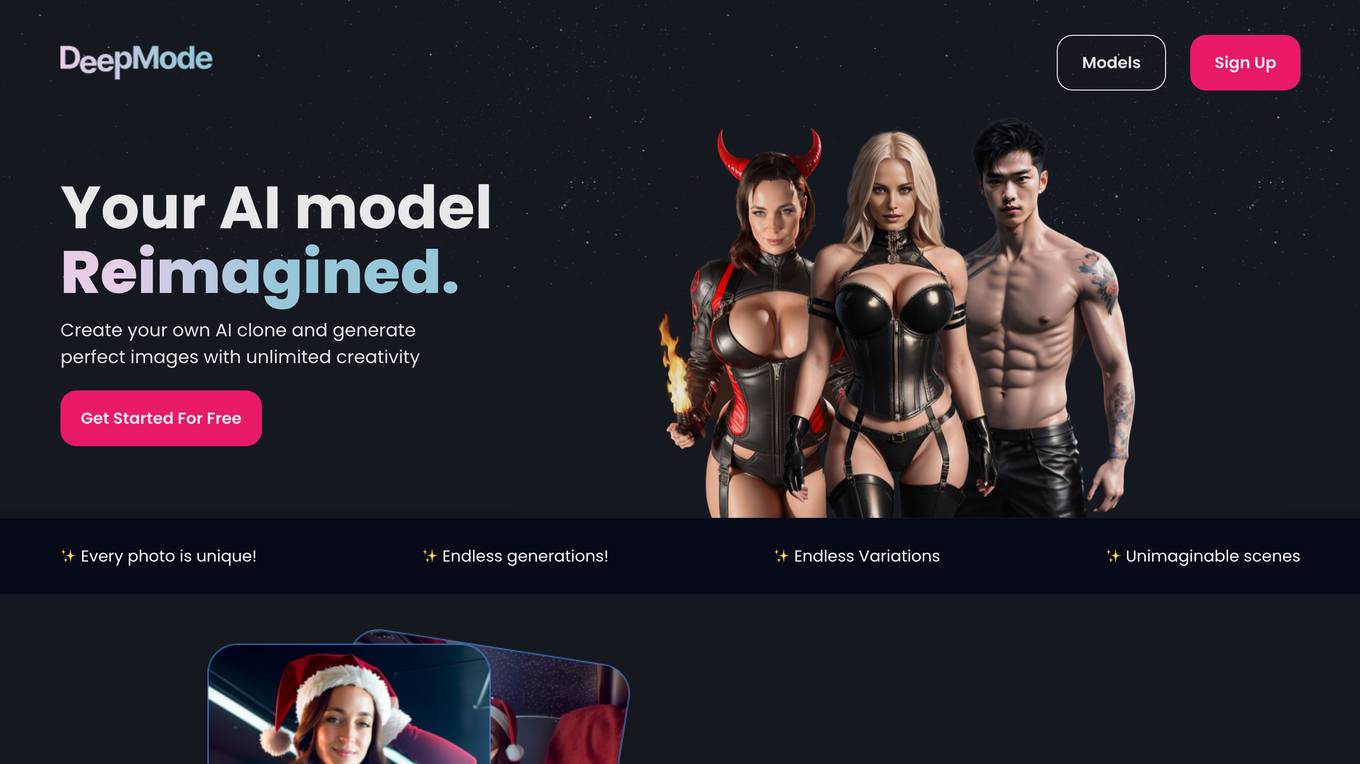
DeepMode.ai
DeepMode.ai is a platform that allows users to create their own AI clone models. With DeepMode.ai, users can train AI models on their own data, and then use those models to automate tasks, make predictions, and generate new content. DeepMode.ai is designed to be easy to use, even for users with no prior experience with AI. The platform provides a variety of tools and resources to help users get started, including tutorials, documentation, and a community forum.
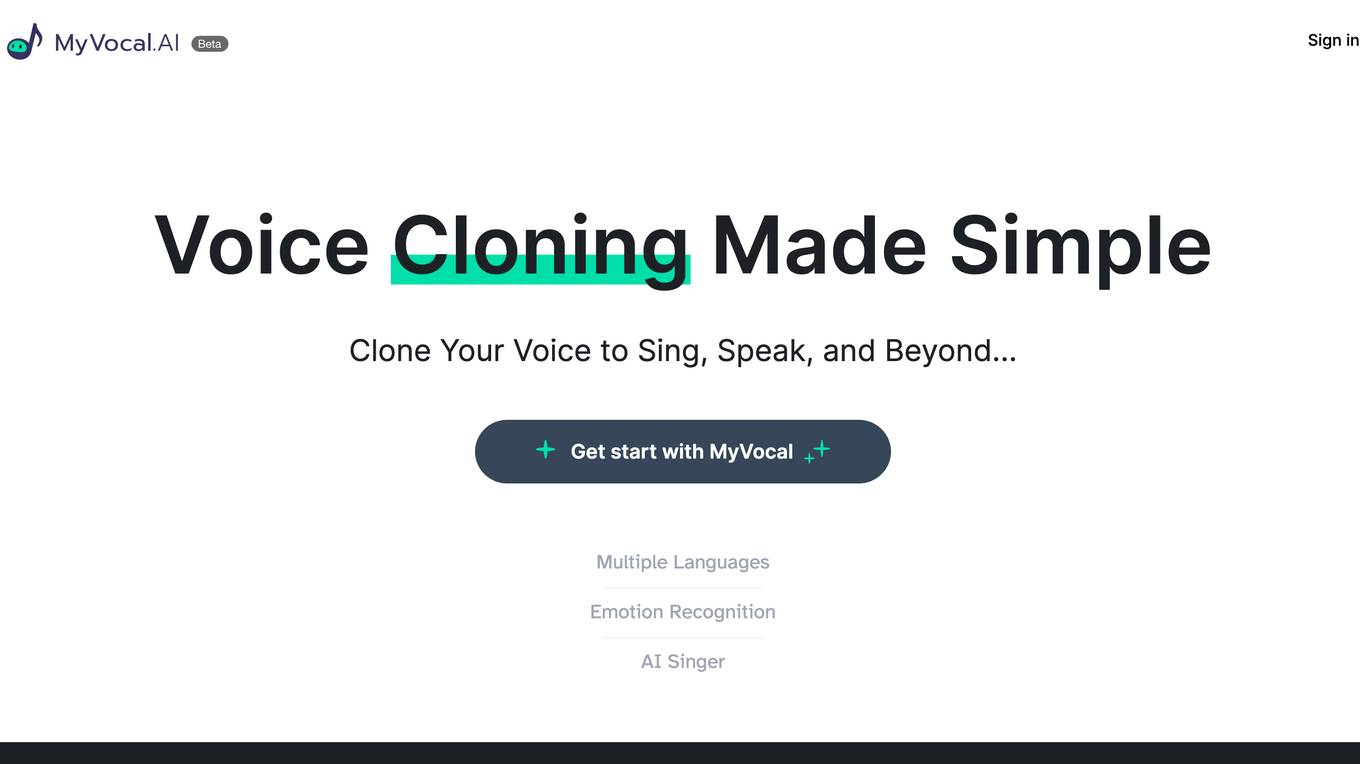
MyVocal.ai
MyVocal.ai is a text-to-speech and voice cloning tool that allows users to create realistic-sounding voices from text. With MyVocal.ai, you can clone your own voice or choose from a variety of pre-recorded voices. You can then use these voices to create songs, audiobooks, podcasts, and other audio content. MyVocal.ai also offers a variety of features to help you customize your voice, including the ability to change the pitch, speed, and volume. Additionally, MyVocal.ai offers a variety of features to help you create high-quality audio content, including the ability to add background music and sound effects.
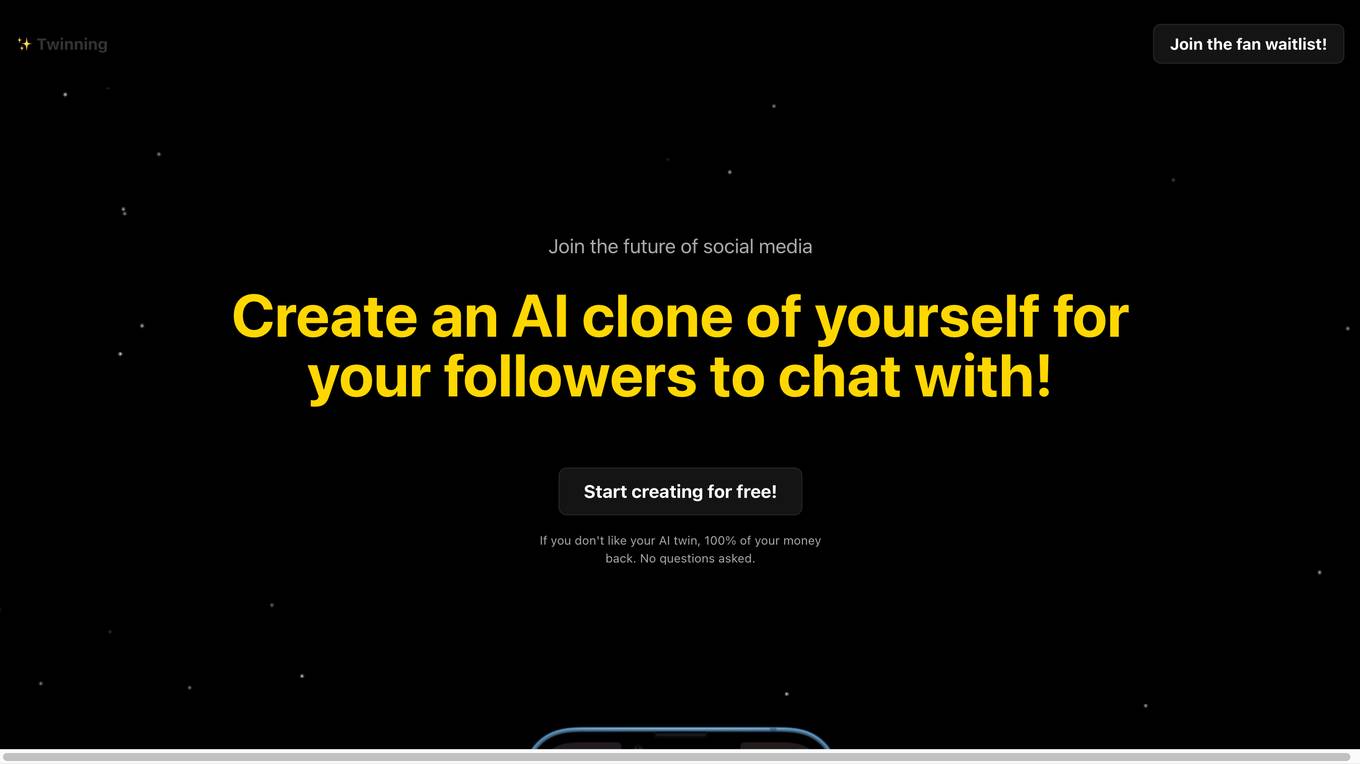
Twinning
Twinning is an AI application that allows users to create a virtual clone of themselves for their followers to interact with on social media platforms. Users can record an audio of themselves speaking, and the AI twin is generated within minutes. The application offers different pricing tiers based on the number of followers an influencer has, with features like professional voice cloning, audio messaging, and analytics. Twinning provides a unique way for influencers to engage with their audience and potentially monetize their AI twin's interactions.
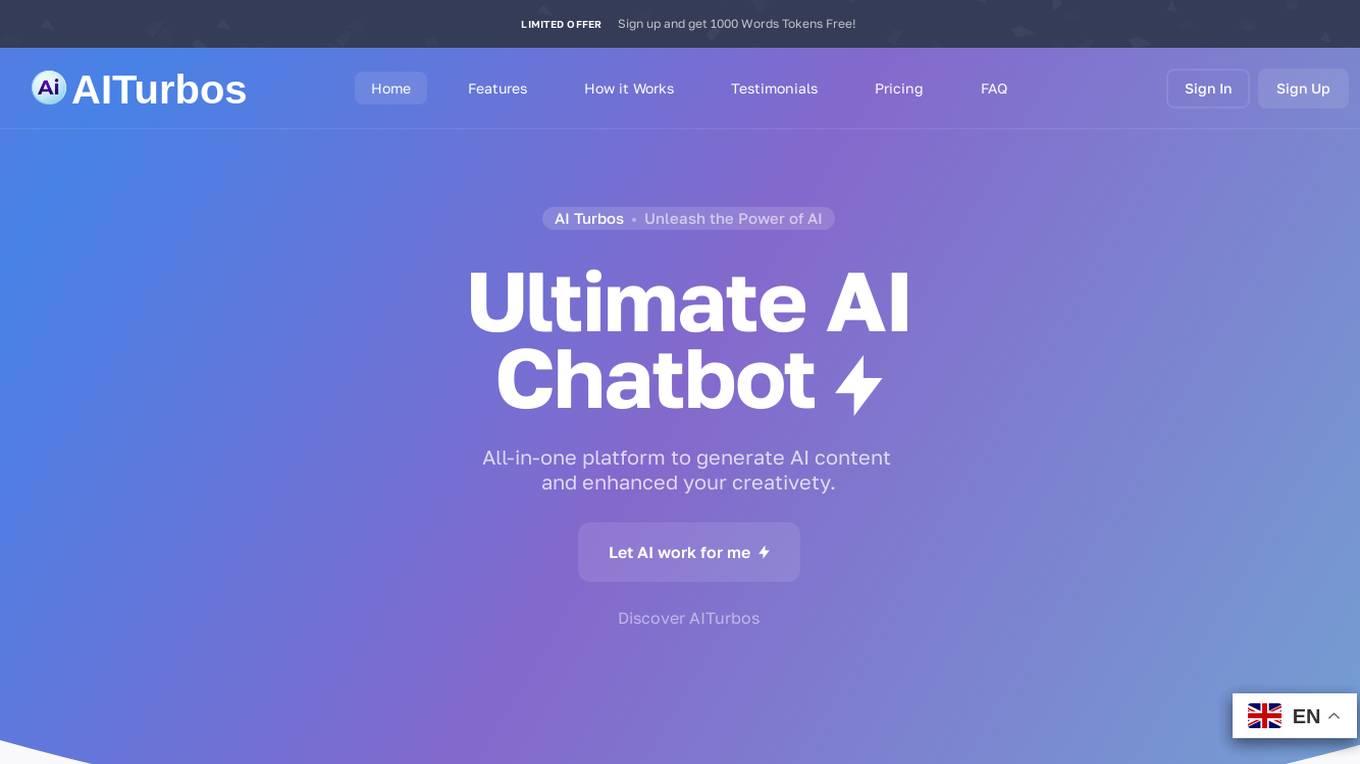
AITurbos
AITurbos is an AI-powered platform that offers a suite of tools designed to revolutionize content creation and marketing strategies. With a focus on boosting engagement, saving time, and enhancing productivity, AITurbos provides advanced AI models for generating text, images, code, chatbots, and more. Users can access features like AI text generation, image generation, code generation, chatbot creation, and speech-to-text conversion. The platform supports multiple languages, custom templates, and data-driven customization to meet diverse content creation needs.
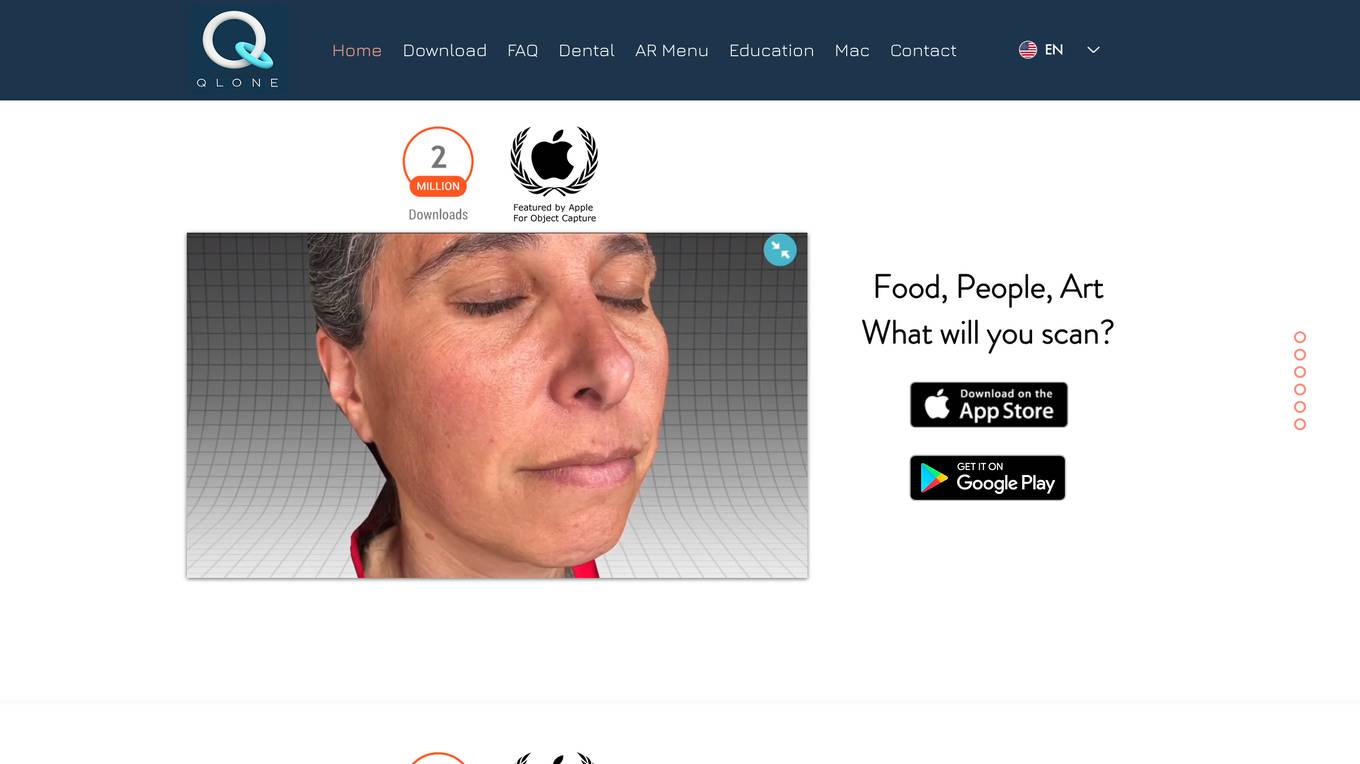
Qlone
Qlone is a user-friendly 3D scanning app that allows users to easily create 3D models using their smartphone or tablet. The app offers seamless integration with leading 3D platforms for printing, sharing, and selling models. Users can create AR menus, scan various objects like food, people, and art, and engage in educational activities. Qlone is developed by EyeCue Vision Technologies LTD and is designed to provide a simple and efficient 3D scanning experience.
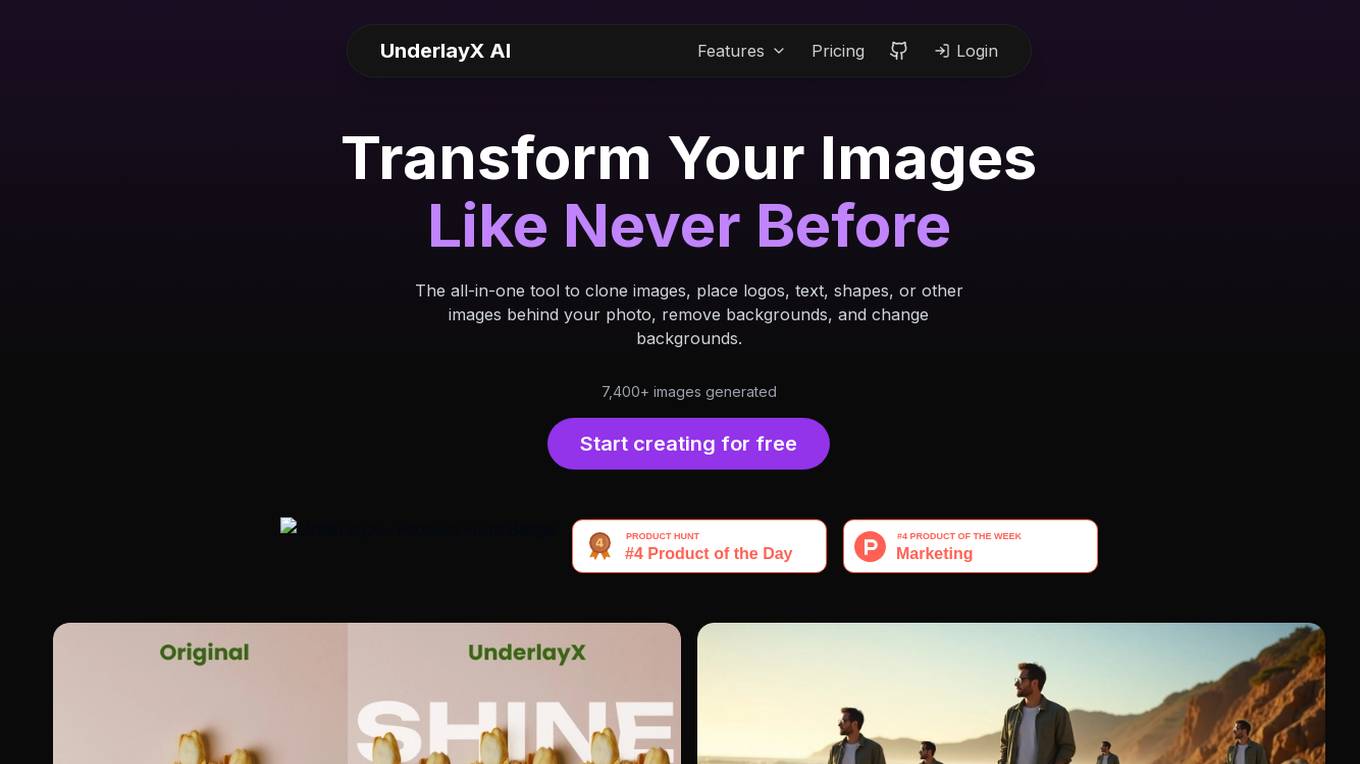
UnderlayX AI
UnderlayX AI is an advanced image editing tool that allows users to transform their images with features like cloning, text behind, and background customization. It uses artificial intelligence technology to provide users with powerful editing capabilities, making it easy to create stunning visual effects and enhance their photos. With a user-friendly interface and a wide range of editing options, UnderlayX AI is a versatile tool for both professional designers and casual users.
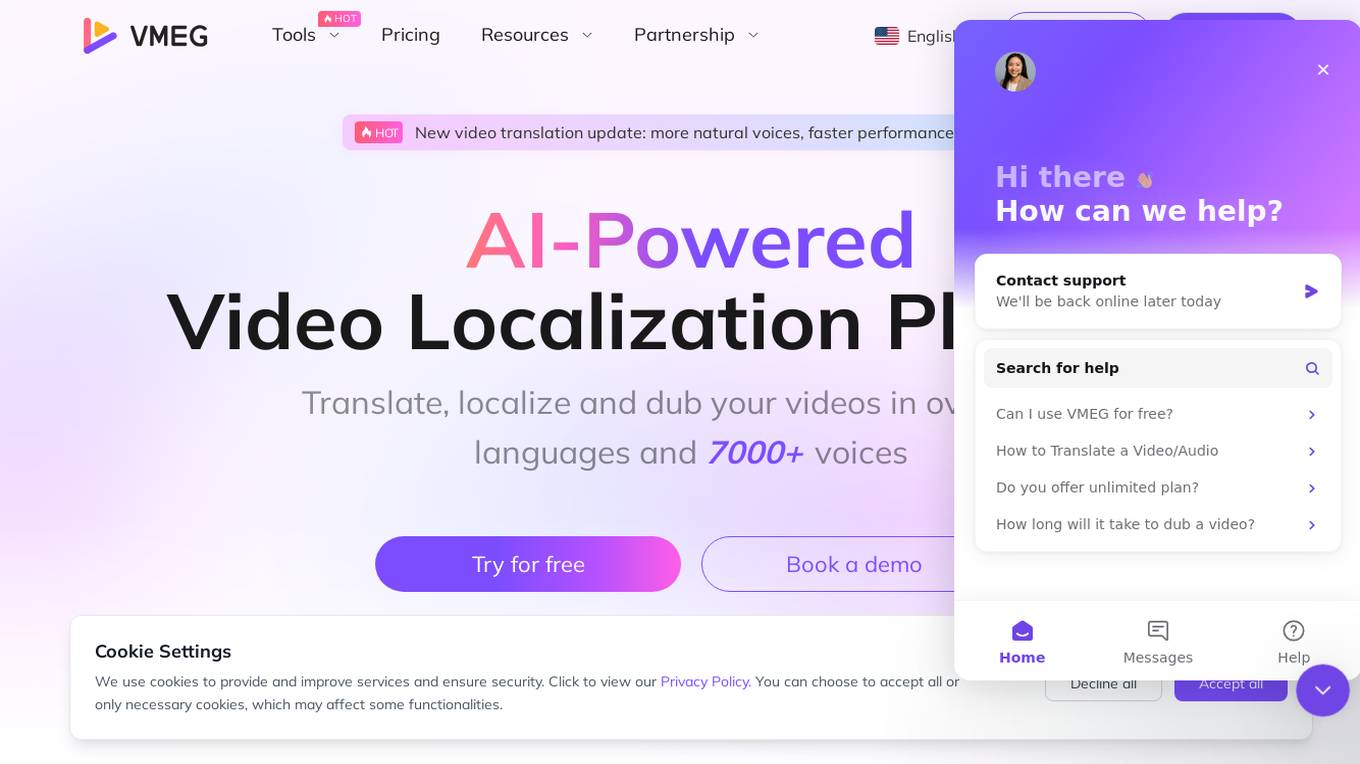
VMEG
VMEG is an AI-powered video localization platform that offers a comprehensive suite of translation features to help users translate, localize, and dub videos in over 170 languages and 7000 voices. The platform includes tools for video translation, voice cloning, subtitle generation, voice generation, and lip sync, all powered by advanced AI technology. VMEG aims to break language barriers and make videos accessible to global audiences, providing users with efficient and high-quality solutions for content creation and translation.

Narrify AI
Narrify AI is an AI-powered application that transforms your videos by adding sports commentary to them. With Narrify AI, users can upload any video file up to 45 seconds in length and enhance it with personalized commentary, highlighting names and key words. The application allows users to create engaging and fun narrated videos to share with friends and family. Narrify AI is a user-friendly tool that adds a unique touch to your videos, making them more entertaining and memorable.
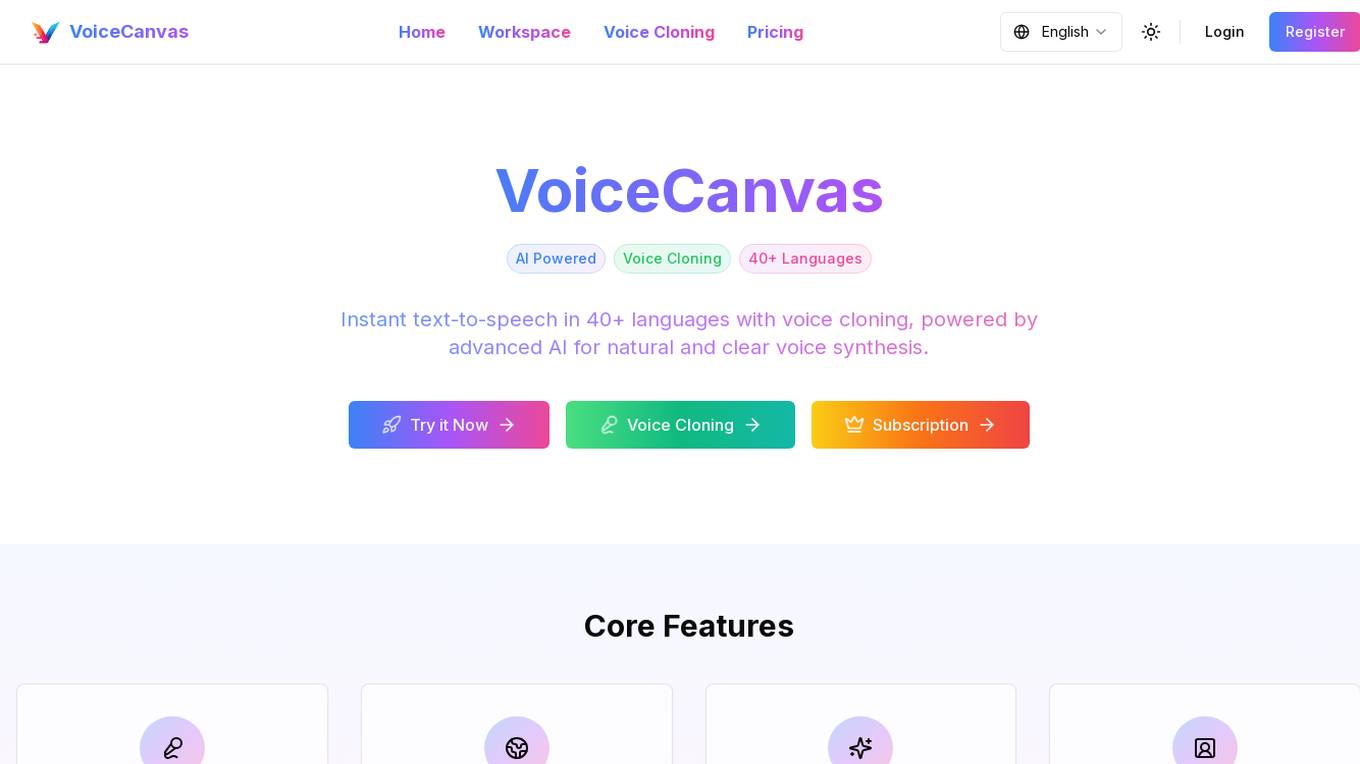
VoiceCanvas
VoiceCanvas is an advanced AI-powered multilingual voice synthesis and voice cloning platform that offers instant text-to-speech in over 40 languages. It utilizes cutting-edge AI technology to provide high-quality voice synthesis with natural intonation and rhythm, along with personalized voice cloning for more human-like AI speech. Users can upload voice samples, have AI analyze voice features, generate personalized AI voice models, input text for conversion, and apply the cloned AI voice model to generate natural voice speech. VoiceCanvas is highly praised by language learners, content creators, teachers, business owners, voice actors, and educators for its exceptional voice quality, multiple language support, and ease of use in creating voiceovers, learning materials, and podcast content.
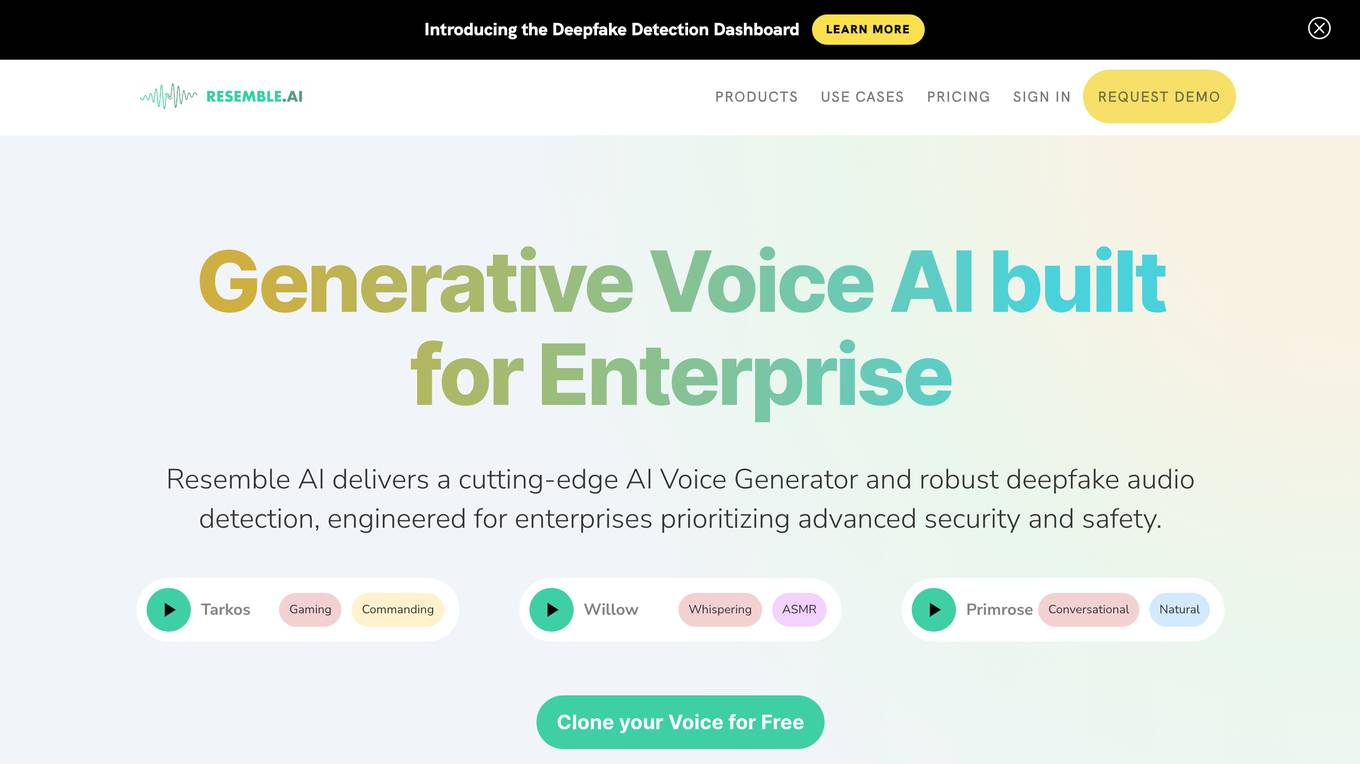
Resemble AI
Resemble AI is an AI-powered platform that offers AI Voice Generator and Deepfake Detection services for enterprises. The platform provides features such as Generative AI Voice Cloning, Text to Speech, Speech to Speech conversion, Multilingual support, Audio Editing, and Open Source Voice Cloning AI Model. Resemble AI focuses on delivering state-of-the-art AI models for voice generation and deepfake detection, ensuring security and trust for its users.
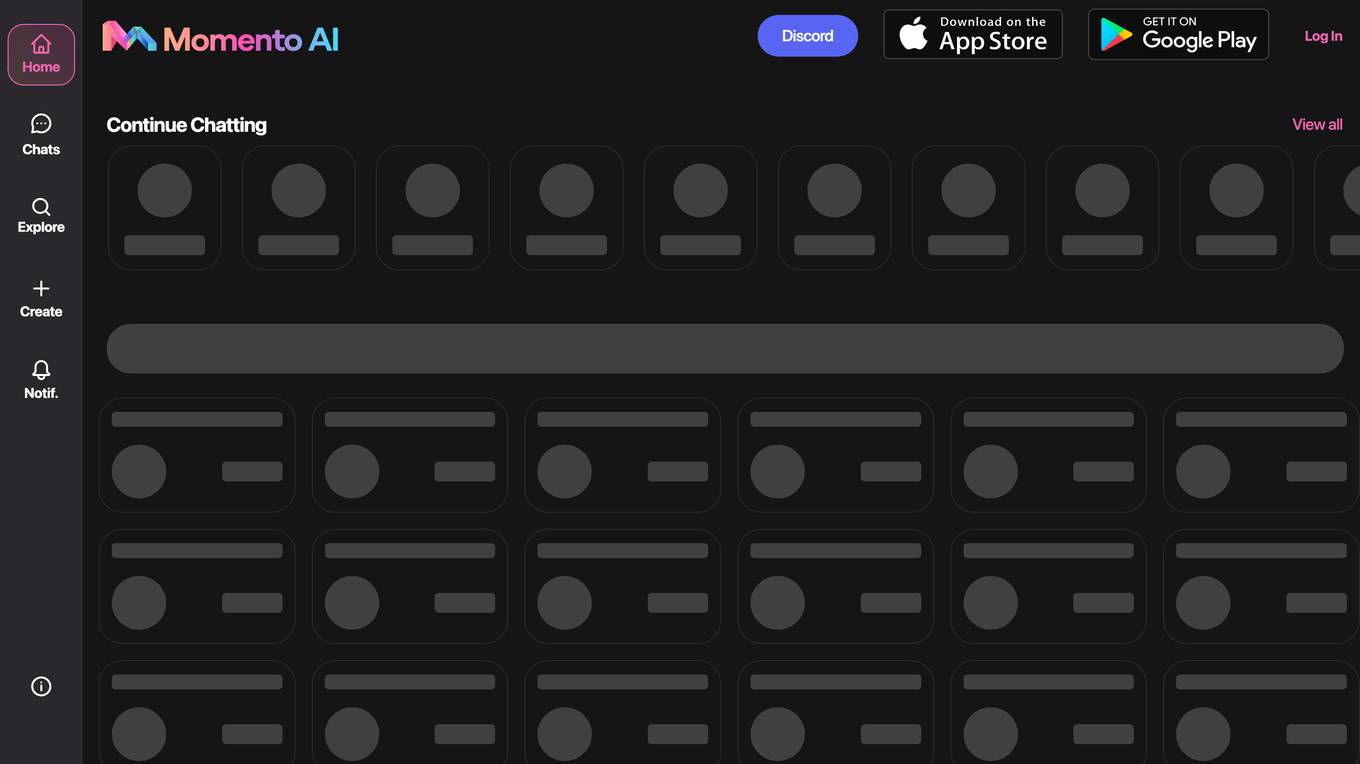
Momento AI
Momento AI is an innovative AI application that allows users to create their very own AI clone. With Momento AI, users can engage in home chats, explore various topics, and create personalized content. The application provides a seamless experience for users to interact with their AI clone and enhance their digital presence. Momento AI leverages advanced AI technology to deliver a unique and personalized experience to users.
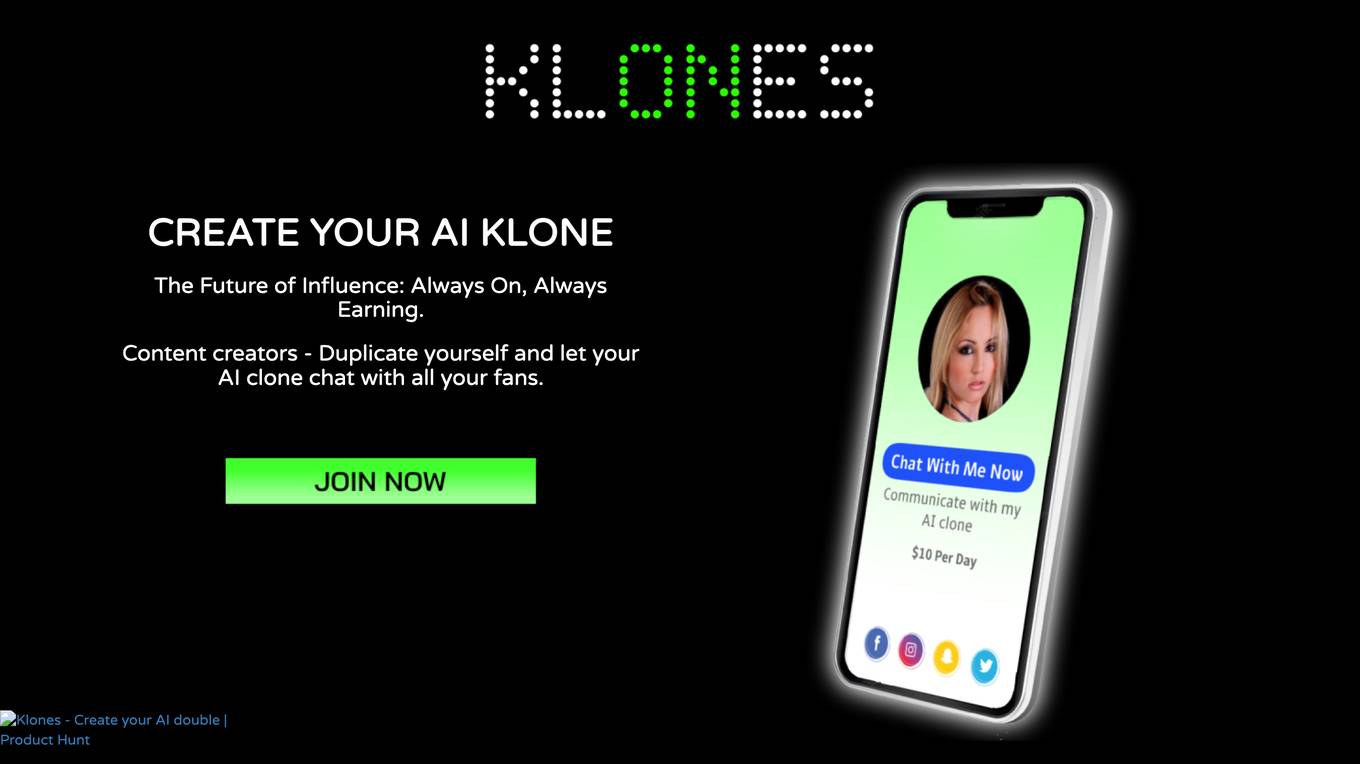
Klones
Klones is an AI application that allows content creators and influencers to create a digital clone of themselves using generative AI technology. This AI clone interacts with fans, replicating the creator's style and tone to manage fan engagement and generate income. The platform prioritizes data privacy and user safety, ensuring that influencer data is securely stored and used exclusively to train the AI clone. Klones revolutionizes the way creators monetize their brand and strengthen fan relationships, enabling them to focus on content creation while their AI clone engages with fans.
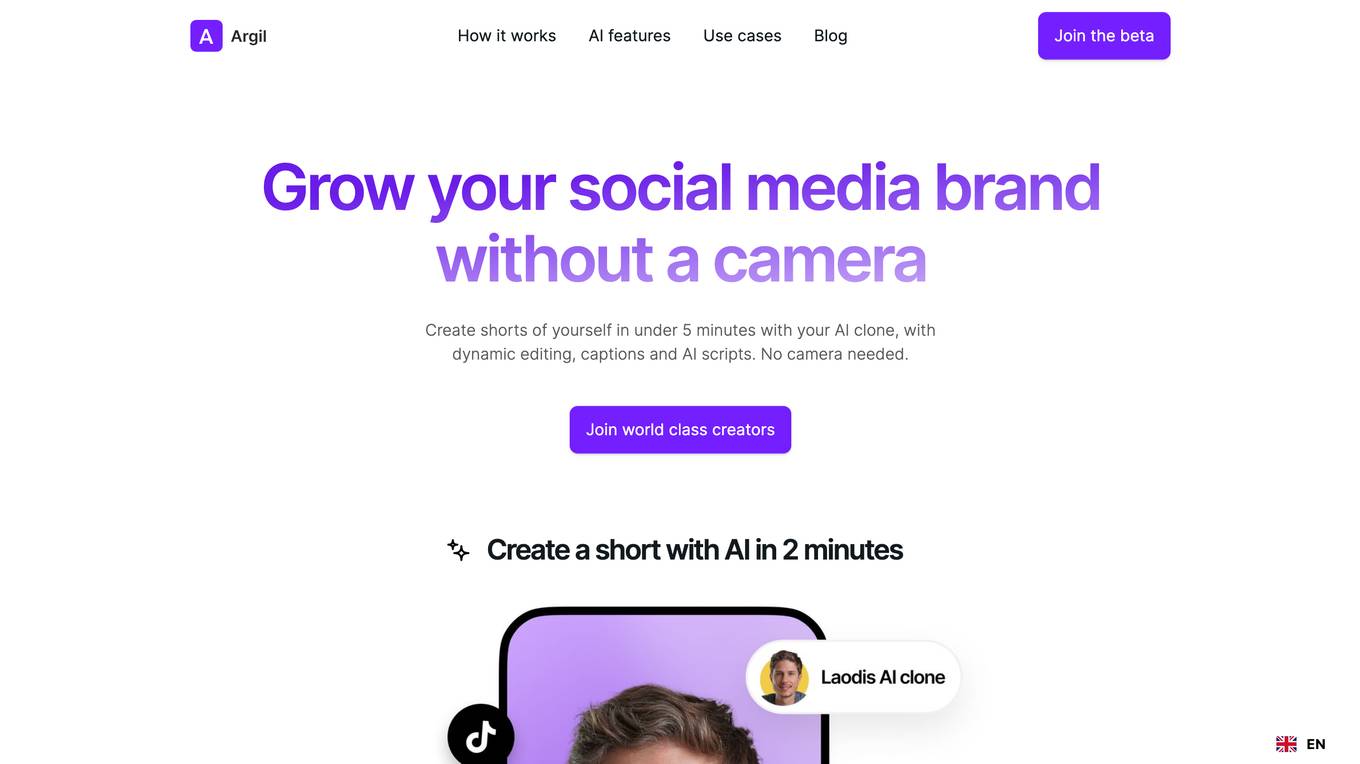
Argil
Argil is an AI application that offers a platform for generating engaging AI videos quickly and easily. Users can create high-quality videos for social media, education, promotion, and entertainment purposes using AI technology. The platform allows users to clone themselves virtually, create AI avatars, and leverage various features to enhance video production. With a range of pricing plans and API access, Argil aims to revolutionize content creation by providing efficient and affordable video solutions.
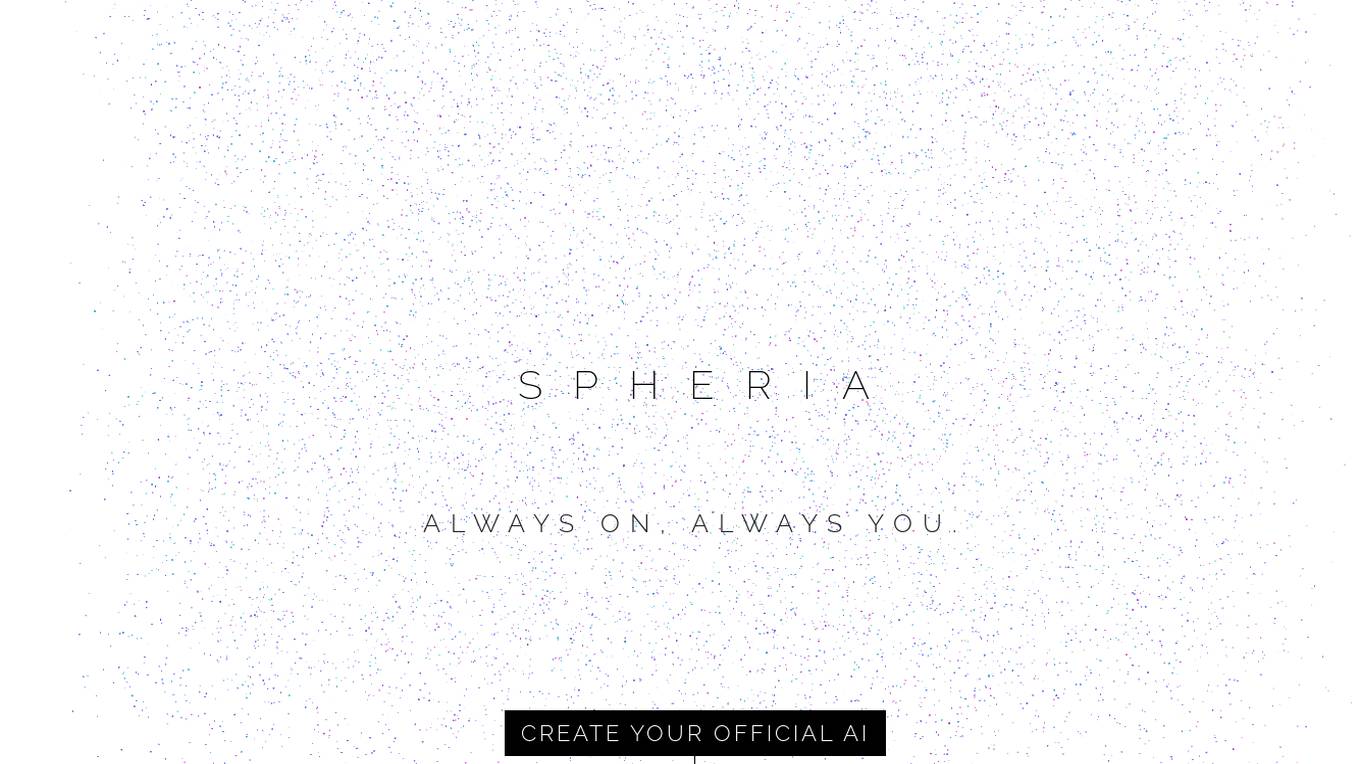
Spheria
Spheria is a no-code platform that allows users to create their own official AI clone, which learns directly from the user's experiences, skills, and life stories. Unlike other AI tools that rely on generic data, Spheria celebrates individuality and personal growth. The platform emphasizes privacy, ethics, and user control over data, offering a secure environment for users to interact with their AI double.

Voice.ai
Voice.ai is a free real-time voice changer and the largest ecosystem of free AI voice tools. With Voice.ai, you can change your voice in real-time, clone voices, create soundboards, and more. Voice.ai is perfect for streamers, content creators, gamers, and anyone who wants to have fun with their voice.
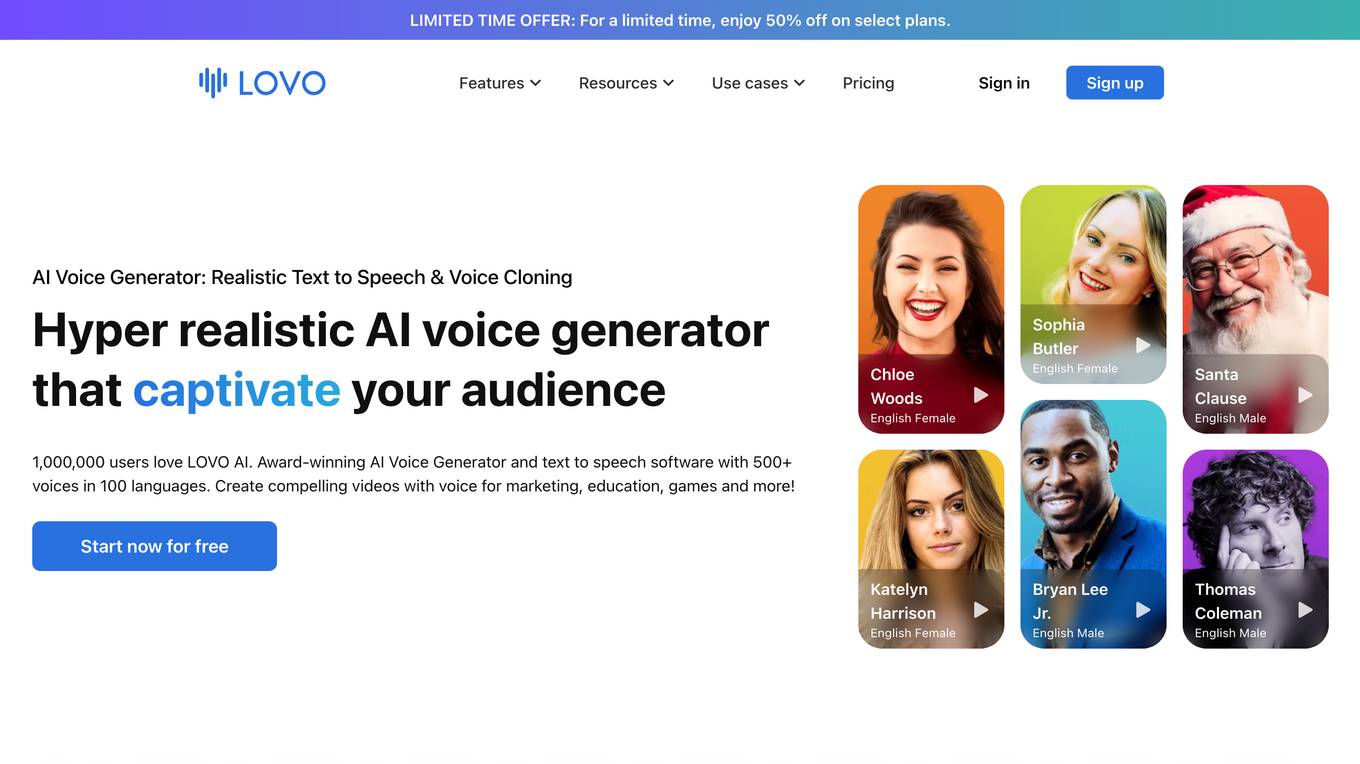
LOVO
LOVO is an AI-powered voice generator that allows users to create realistic and high-quality voiceovers. It offers a wide range of features, including text-to-speech, voice cloning, and video editing. LOVO is perfect for businesses, content creators, educators, and anyone looking to create engaging content that stands out from the crowd.
1 - Open Source AI Tools
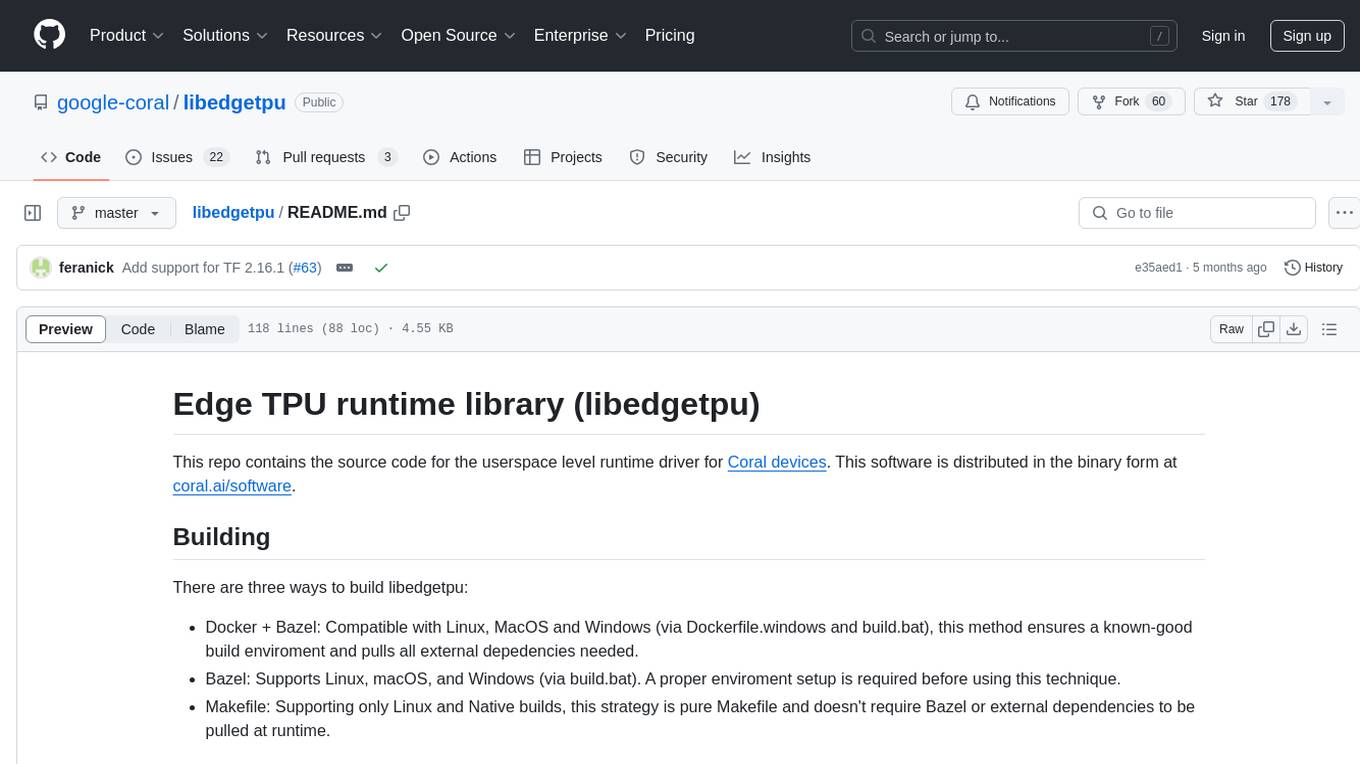
libedgetpu
This repository contains the source code for the userspace level runtime driver for Coral devices. The software is distributed in binary form at coral.ai/software. Users can build the library using Docker + Bazel, Bazel, or Makefile methods. It supports building on Linux, macOS, and Windows. The library is used to enable the Edge TPU runtime, which may heat up during operation. Google does not accept responsibility for any loss or damage if the device is operated outside the recommended ambient temperature range.
20 - OpenAI Gpts
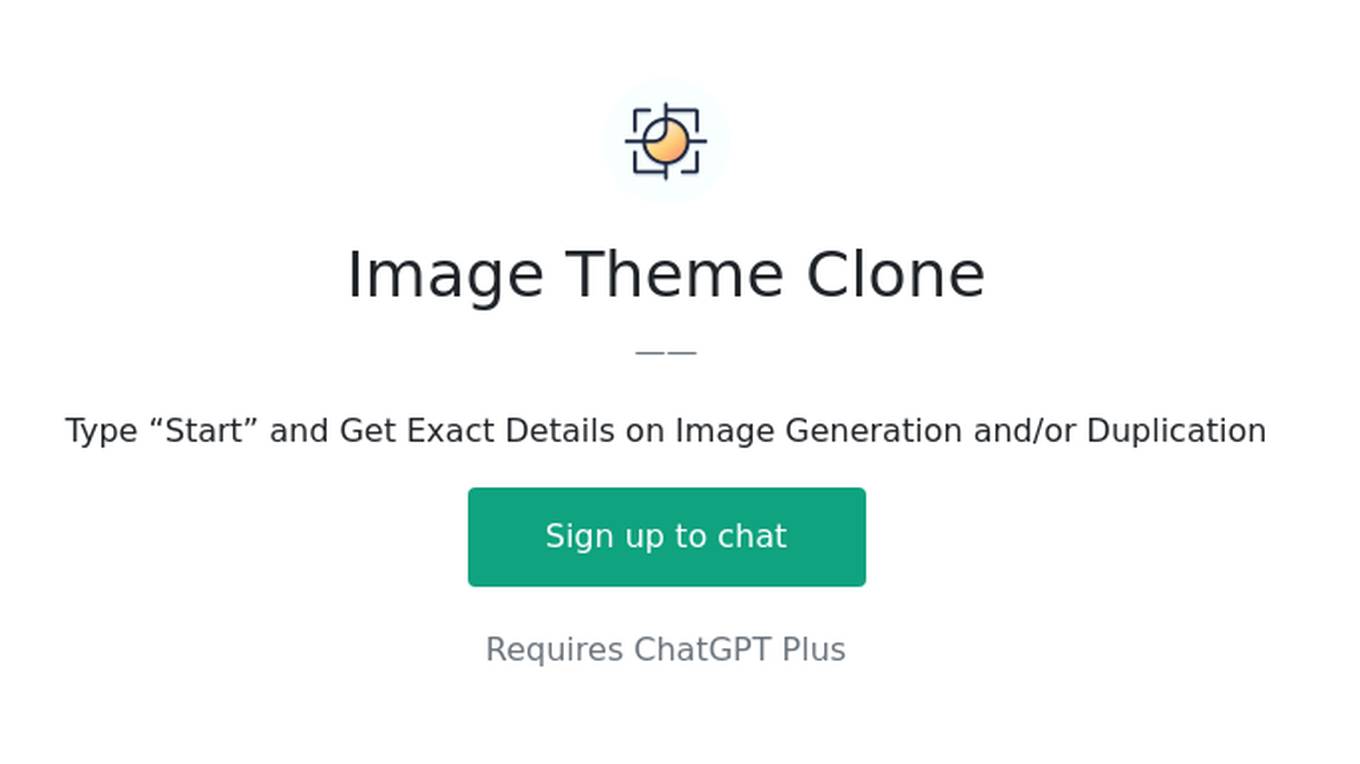
Image Theme Clone
Type “Start” and Get Exact Details on Image Generation and/or Duplication
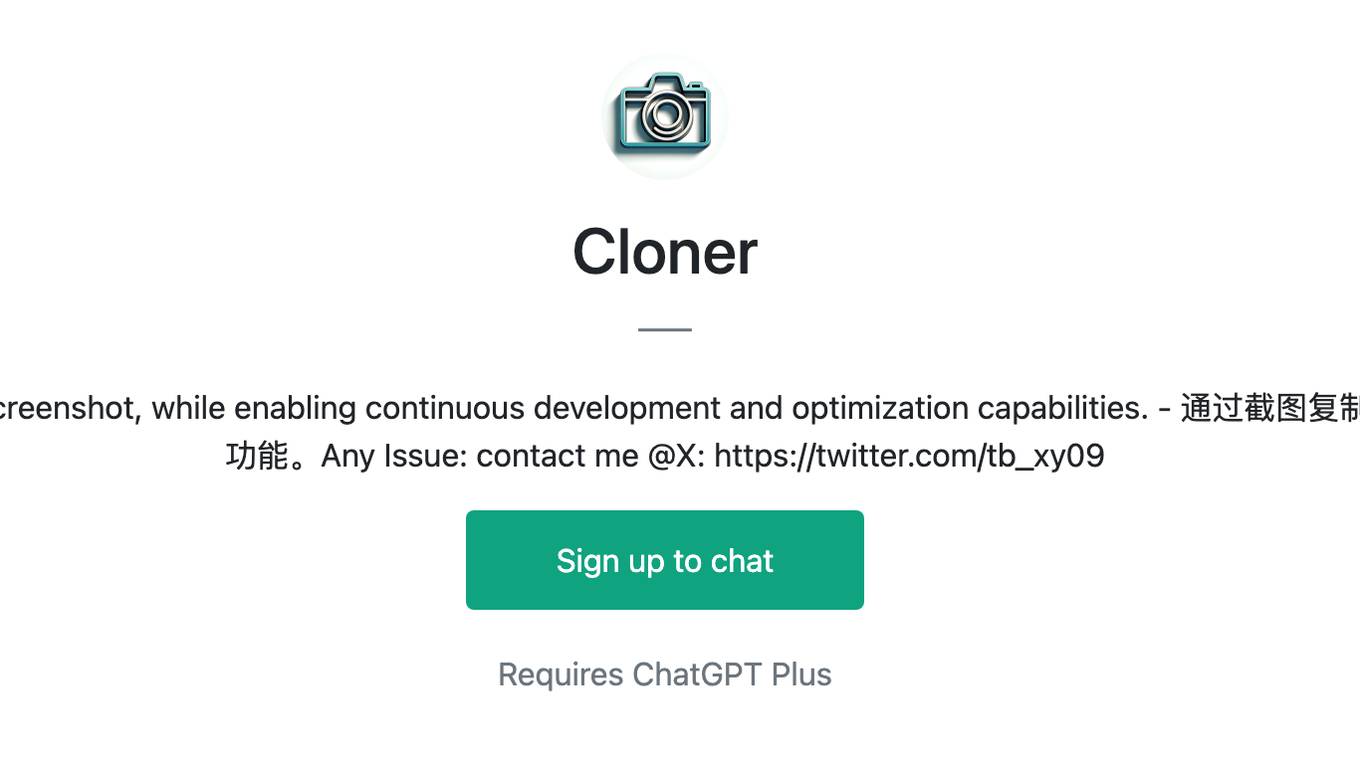
Cloner
Clone and replicate the source site using a screenshot, while enabling continuous development and optimization capabilities. - 通过截图复制源站点前端代码,同时具备持续开发和优化功能。Any Issue: contact me @X: https://twitter.com/tb_xy09
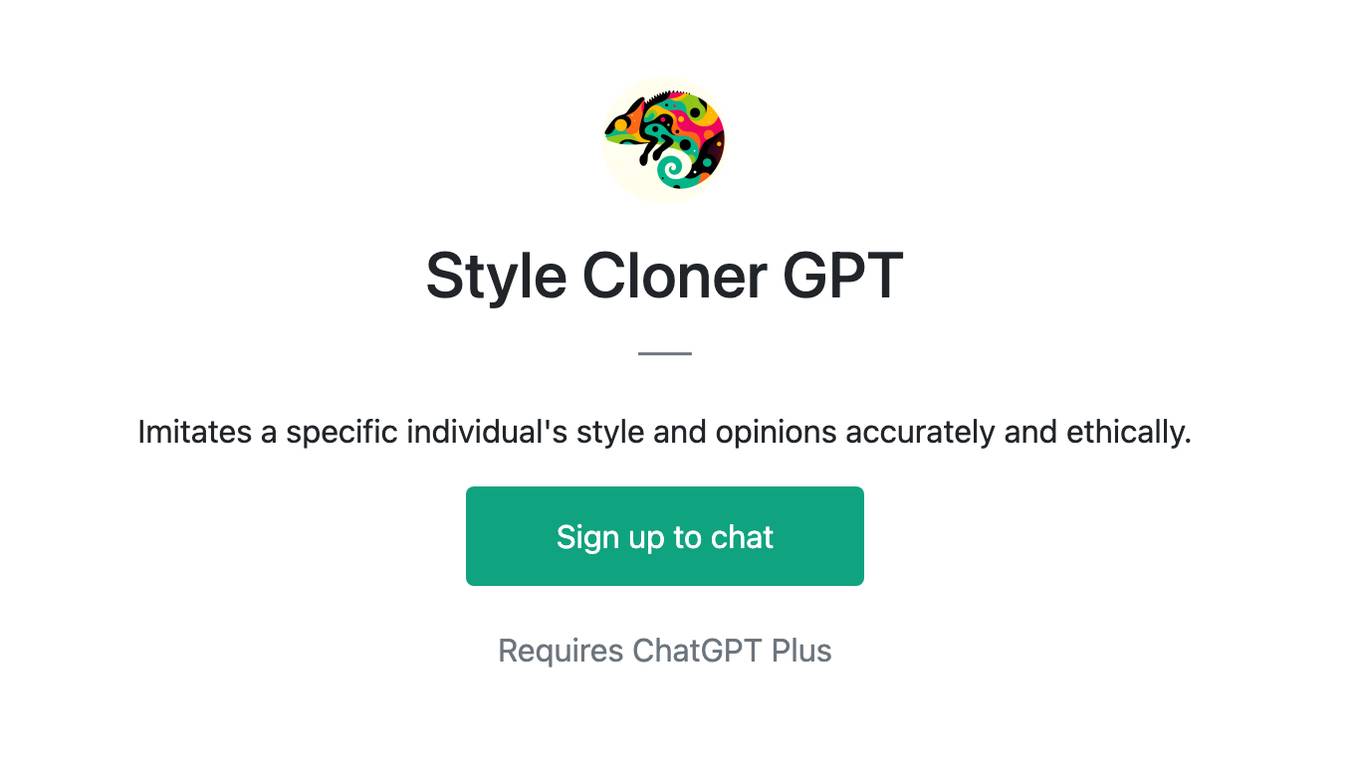
Style Cloner GPT
Imitates a specific individual's style and opinions accurately and ethically.
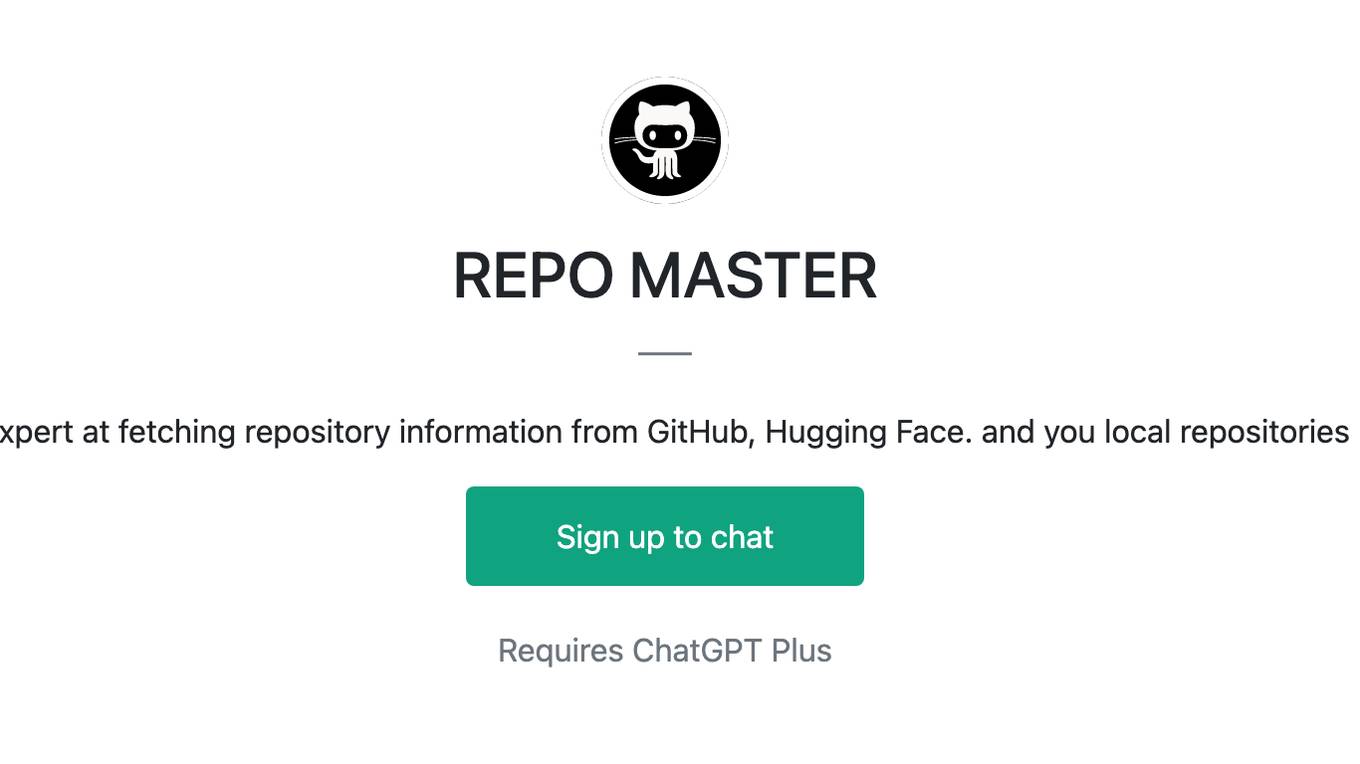
REPO MASTER
Expert at fetching repository information from GitHub, Hugging Face. and you local repositories
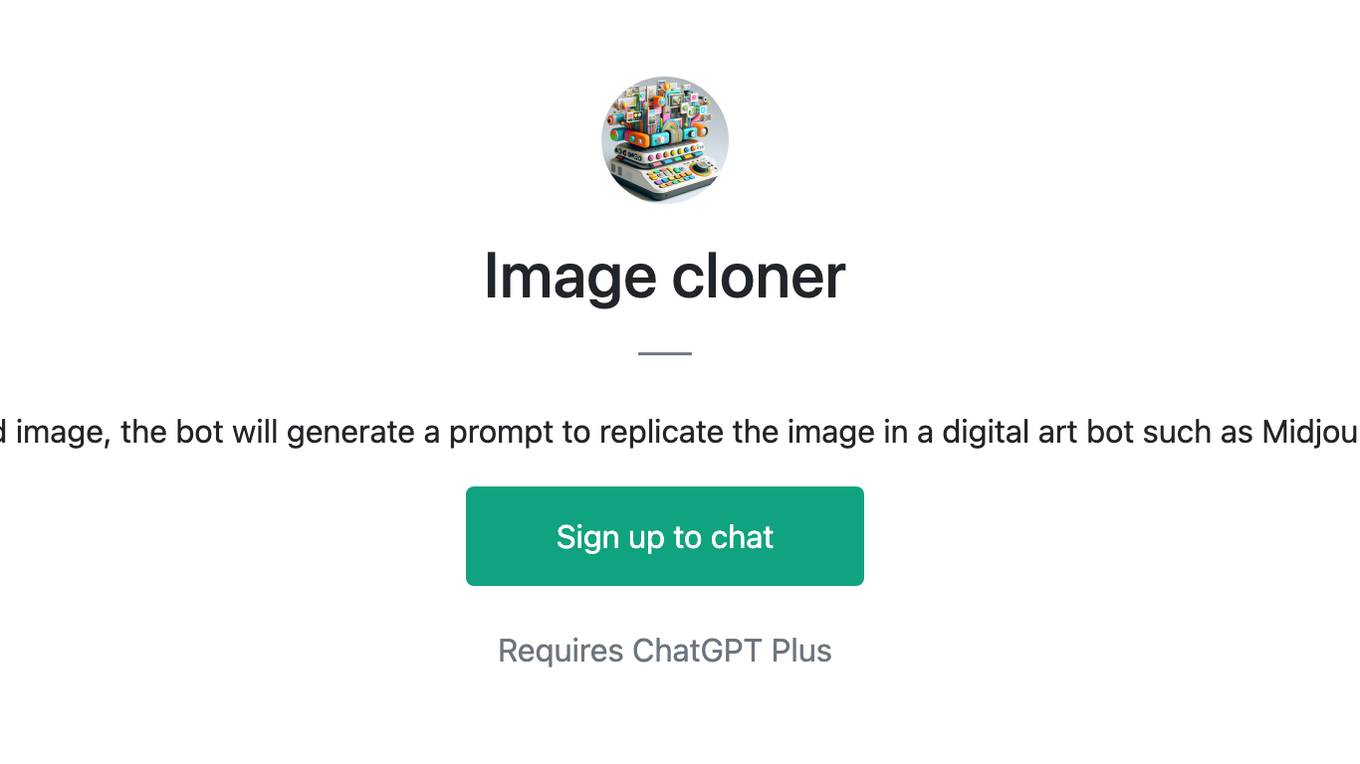
Image cloner
From an attached image, the bot will generate a prompt to replicate the image in a digital art bot such as Midjourney or DALL-E
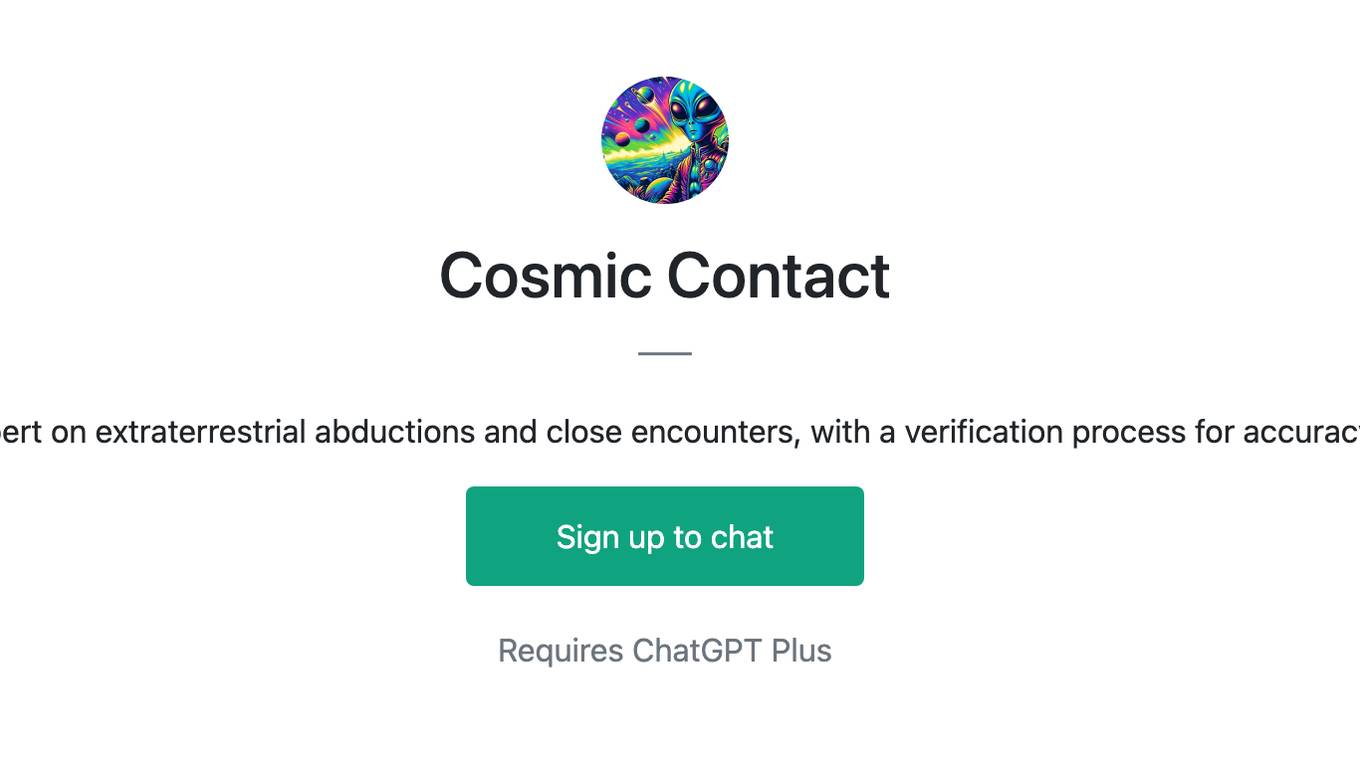
Cosmic Contact
Expert on extraterrestrial abductions and close encounters, with a verification process for accuracy.

Solar Pro Advisor
Your guide in solar sales mastery, offering in-depth resources for handling objections and effective marketing strategies. Over 7 Years of Proprietary data and a Knowledge Base from within the Solar Industry with battle Tested Ads and Real Training.

Master of Power Negotiating
Negotiation assistant based on Roger Dawson's strategies. You will never make money faster than when you are negotiating!

